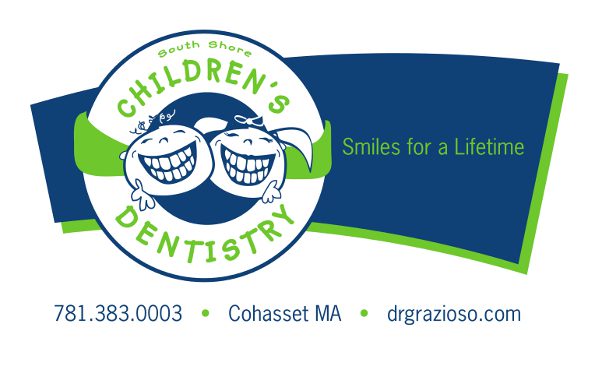You asked! Dr. G answered…
Q: When should brushing teeth become a part of our routine? How many times a day?
As soon as the first tooth comes in! Up until that point it is recommended that you wipe down your baby’s gums, and once teeth appear you can continue to wipe if that is easier at first. Twice a day is a good goal to have!
Q: When can we switch from training toothpaste to regular toothpaste with fluoride?
The American Academy of Pediatrics as well as the American Academy of Pediatric Dentistry recommend switching to a fluoridated toothpaste at 12 months of age. Use it sparingly, just a small smear, and you will not have to worry about what is being swallowed. Fluoride is a very important mineral to keep the enamel of teeth strong to help fight tooth decay!
Q: My kid loves the taste of toothpaste. Is it safe to swallow? Any tips on teaching them to spit?
Use a very small amount of toothpaste if your child can not yet spit out, and the small amount will be okay to swallow. You can also use a gauze or washcloth to wipe the tongue to remove excess toothpaste until the grand art of spitting is achieved! To practice spitting use water at the sink and model what to do. If you make a game out of it , it can be fun!
Q: What do you say to moms who find that getting their kids to brush their teeth is a struggle?
This too shall pass!!! As with anything health related, you just have to power through and insist that tooth brushing get done- this may mean a little bit of restraint on your part (i.e holding your child’s hands down or their head still) with the help of another adult, but over time most kids give up the fight once they realize you will brush their teeth every day, twice a day, whether they fight or not!
Q: When do we give up and let them do it themselves?
To be honest, the best thing to do is stay involved in your child’s oral hygiene routine as long as possible. You can let him/her “take a turn” but until age 10 it is best for you to do the actual brushing and flossing. It is a skill eventually they will learn but most kids just do not do a good enough job alone. A good rule of thumb is- are you still brushing your child’s hair? If you are ,you definitely should be brushing their teeth!
Q: What else can I do for my child’s oral health besides brushing & flossing?
They should be eating a healthy diet low in sugars!!! I can’t stress enough how important this is – not just for your child’s dental health but for their overall health as well. There is strong evidence that a diet high in sugars leads to inflammation within our bodies and this can contribute to diabetes risk, heart disease, and cancer. Health and wellness is a real passion of mine and I encourage families to start with healthy eating habits for their children as soon as they start eating solid food. In addition, if your child has a high risk of dental decay as determined by their pediatric dentist, it may be recommended to use a fluoride rinse after brushing and flossing.
Q: Should my child get routine dental X-rays?
In my opinion, and in my practice, there are no “routine” x-rays. The first time your child will need an x-ray depends on many factors. As soon as the teeth are touching and we can not visualize every surface, which is typically around age 5 or 6, is the typical time an xray will be taken. If your child suffers a traumatic injury, or has a dental development issue ,or is at high risk of dental decay , xrays may be necessary. We follow an “image gently”, conservative approach at South Shore Children’s Dentistry and at our sister practice, Abington Children’s Dentistry and Orthodontics.
Q: What happens if my child gets a cavity before they even begin to lose their teeth?
Your dentist will explain what the next steps will be! Every child is different, but typically a restoration or “filling” will be done so that the cavity does not grow and cause further problems like pain or infection.
Q: We brush, floss and tongue scrape, why does my kid continue to get cavities?
Sometimes it is just life being unfair! But other times you may need to change your child’s diet- our society is inundated with sugary treats! Even crackers eaten regularly throughout the day can cause cavities. All of us have bacteria in our mouth and some strains are more aggressive at causing cavities. In those instances, we recommend more frequent brushing and flossing , a strict low sugar diet, and the use of topical fluoride in addition to what is in regular toothpaste.
Q: How can you fight bad breath in kids?
Good oral hygiene is the first step. Avoid known foods that cause odors, like garlic and onions ( or just don’t worry about the smell!). Also, post- nasal drip can contribute. If your child is sick or has allergies, this could be the culprit.
Q: At what age can I introduce juice to my baby?
The short answer is NEVER!!! Juice is purely water flavored with sugar and has no nutritional value. It is no longer recommended to give juice to your baby.
Thanks Dr. G!







